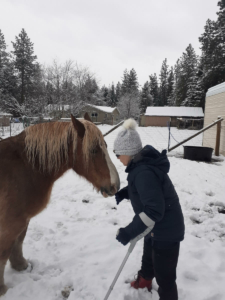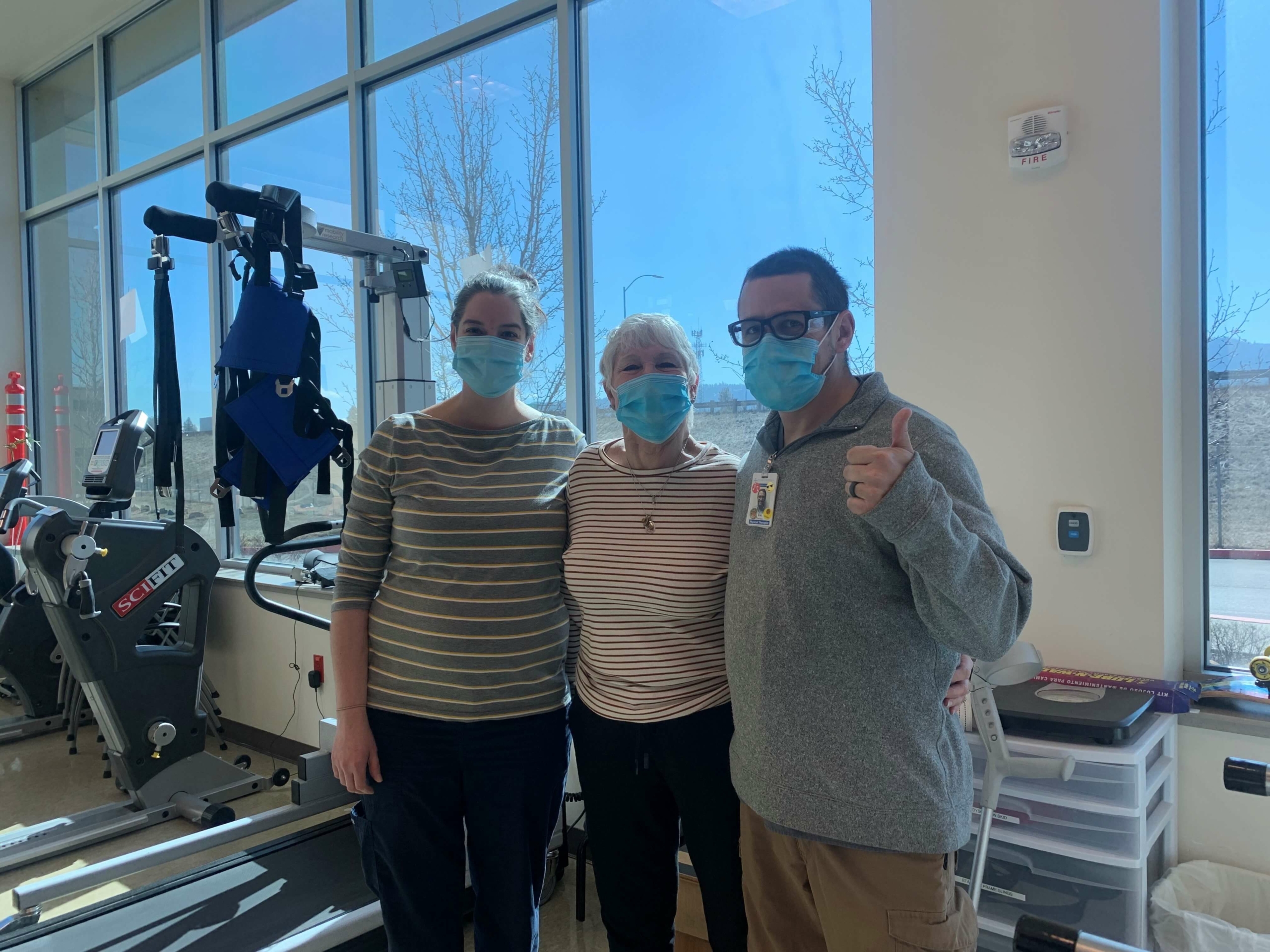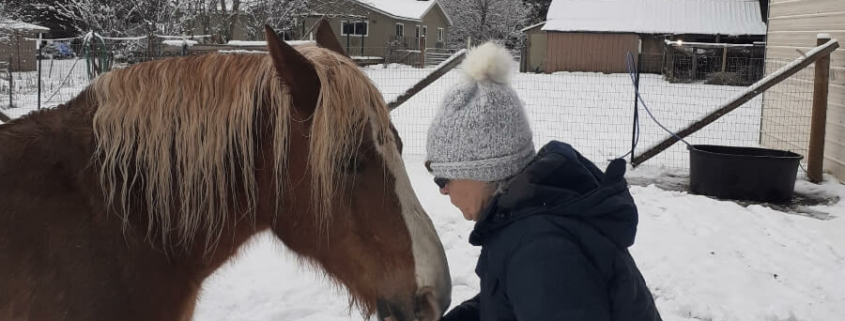
With her kids grown and moved out of the house, Diane Eberly was in her fifties and looking for a new hobby. She found a horse rescue in her hometown in Pennsylvania and began volunteering. Diane loved working with the horses and started taking lessons in western pleasure riding. Shortly after, she became the owner of her first horse, General.
Diane and her husband, Ed, also loved to travel. They liked to vacation in Idaho, Montana, and Wyoming and fell in love with the area. They moved to northern Idaho when she was 69 to be closer to family and to enjoy an active outdoor lifestyle. Shortly after arriving, her second horse, Scooter, a seventeen-year-old Belgium Draft, made the trip to northern Idaho.
One beautiful summer day, Diane and her husband went out for a ride. Ed was capturing pictures of her and Scooter when the unthinkable happened. She fell from her horse and suffered a major traumatic spinal cord injury. Ed immediately called 9-1-1 and the ambulance took her to Kootenai Hospital. She spent nearly a week there undergoing surgeries and starting her long road to recovery.
Luckily, Diane was wearing a helmet that protected her brain when she fell. However, her spine suffered multiple injuries that required extensive surgery. This included laminectomy, discectomy, plating, fusing, and caging for several of her cervical vertebras, as well as spinal cord decompression. Several days later, Diane also had to have surgery on her wrist.
Diane’s surgeon was optimistic but knew that she had an intense recovery ahead of her. Post-surgery, Diane was unable to utilize her fine motor movements in both hands and experienced numbness. She was on a robust pain regimen and required a Hoyer lift for transfers out of bed. She required a cervical collar for additional protection and to restrict movement. Because of her condition, Diane needed assistance with her activities of daily living.
When Diane reflects on her initial days at Kootenai, she didn’t remember much. She couldn’t even recall the accident and was just thankful to be alive. Five days after the accident, she was discharged from Kootenai Hospital and admitted to Rehabilitation Hospital of the Northwest.
Diane knew she was going to have to work hard to see improvements. “I had to progress. What else was I supposed to do except work with what I have left? You have to keep moving forward,” she explained.

Over the next four weeks, Diane had to re-learn how to do things like getting in and out of bed, walking, and eating and writing with her non-dominant hand. She made great progress and was thankful for the full support from the RHN staff. “The team was very attentive to all of my needs,” she said. “I want to thank everybody that helped me.” When she was first admitted, she was dependent for all care. At discharge, she ranged from moderate assist to supervision for most cares.
A friend of Diane’s flew in from Pennsylvania to help her the first two weeks she was home. She had a total lifestyle change and needed assistance with her daily routine. Her family built a wheelchair ramp for easy entrance to the house. They also worked on a sleeping and bathing setup that was suitable for the cervical collar she had to wear 24/7. North Idaho Home Health came in to continue managing her medical and rehabilitation needs. Even though she was not used to relying on others for this much help, she was thankful for the support from her family, friends, and the home health company.
Diane’s hard work and determination paid off. She is now walking with a cane, can shower by herself, and can write with her non-dominant hand. She attends outpatient therapy two days a week and participates in aquatic therapy. In the spring, she is hoping to get back on her horse so she can utilize equine-assisted therapy, or hippotherapy.
“If my story can help motivate anyone facing this type of life-changing situation, I am glad to share it,” Diane shared. “I would tell them, don’t give up! You might think you can’t do it, but you can! Your body is an amazing thing!”


